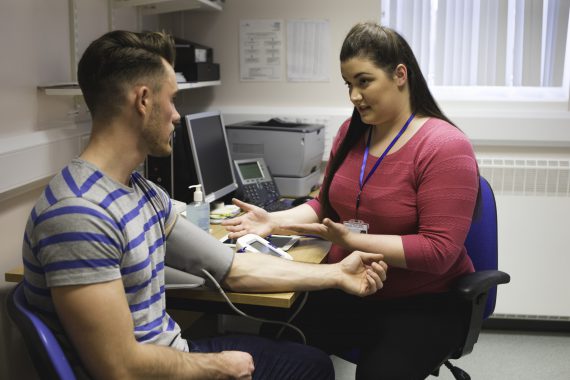The ‘ongoing deterioration’ of the GP workforce will seriously hinder the Government’s plan to move care out of hospitals and into the community, according to a new report.
The analysis, published by the Health Foundation, found worrying trends in the NHS workforce, with the number of FTE GPs falling by 1.6% (450) between September 2017 and September 2018.
The NHS long-term plan, which sets out how the Government will spend a £20.5bn funding boost for the NHS, set aside £4.5bn to ensure care is diverted away from secondary care and into primary care and the community.
But, this report into NHS staffing casts doubt into how this will work, stating workforce shortages will ‘severely hinder progress’.
Last month, the National Audit Office warned NHS staff shortages could ‘presents a real risk’ to the impact of the £20.5bn NHS funding boost, and highlighted that this extra funding does not cover certain crucial areas, such as funding for doctors’ and nurses’ training.
The new report, published this week, said: ‘Analysis of the NHS staff profile and trends in England in 2018 largely confirms the trends identified in our previous reports, showing an ongoing deterioration for some key staff groups.’
‘Staffing in some key areas is a problem. The number of GPs is falling, as is the number of nurses and health visitors working in community and mental health services…The number of GPs (excluding locums and trainees) has fallen by 1.6% from 27,836 FTE in September 2017 to 27,386 FTE in September 2018,’ it said.
Overall staff retention has ‘worsened’ since 2011/12 and there has been ‘no improvement over the past year’, according to the analysis.
‘International recruitment will remain vital to achieving the overall staffing numbers needed, but it is currently being constrained by broader migration policies and by the uncertainties of Brexit,’ the report said.
This comes as Pulse reported last week that some CCGs have been forced to cut international recruitment over targets, which they deemed ‘overly ambitious’.
NHS England has admitted just over 70 GPs – only 50 of which are in the country – have been recruited so far, against a target of around 2,000.
RCGP chair Professor Helen Stokes-Lampard said: ‘The NHS long-term plan has some truly commendable aspirations that will benefit patients, and it also recognises the importance of a robust general practice service in keeping the NHS sustainable, but we need the workforce to be able to deliver it.
‘It is imperative that the forthcoming NHS workforce strategy includes comprehensive plans to boost GP recruitment – and great work is already ongoing – but also to keep existing GPs in the profession longer, so that we can deliver the care our patients need and deserve.’
Health Foundation director of research and economics Anita Charlesworth said: ‘Providing more care outside of hospitals is central to the NHS long-term plan but the health service faces an uphill struggle.
‘If it can’t recruit and retain more healthcare professionals in primary, mental health and community care, this will continue to be an unrealised aspiration. There is unfortunately no sign that the long-term downward trend for key staff groups, most notably GPs, will be reversed.’
The new GP contract, released last month by the BMA and NHS England, pledged to recruit 22,000 additional practice staff, including pharmacists and paramedics, by 2023/24 to help GPs manage their workload.

















